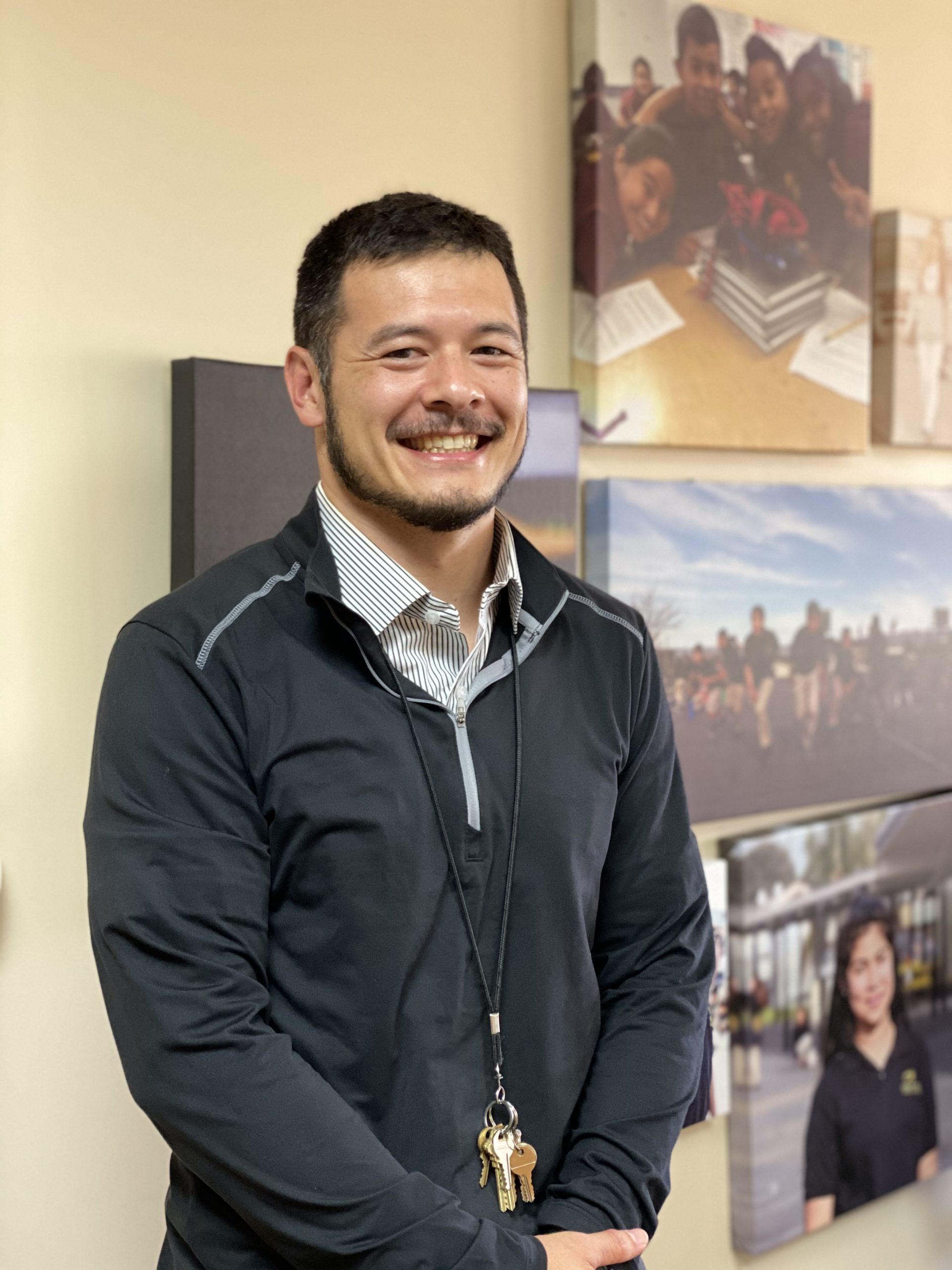
I remember during my initial job interview with John Glover, he said, “you think really differently from the rest of our team and that makes me uncomfortable. I think we need that.” It’s hard to believe that was 6 years ago. This is my 7th year at Alpha and even though there have been a lot of hard lessons learned, we continue to grow and progress – and every year really has been better than the last.
I joined Alpha: Blanca Alvarado in its second year as an Assistant Principal. After a couple years, I shifted to the network as a part-time school leader and part-time network staff where I was helping to develop Social-Emotional Learning (SEL) curriculum. From there, I shifted to the role that I am now, focusing on building positive student and adult culture.
My biggest focus right now is Multi-Tiered System of Supports (MTSS), working with staff to determine the interventions, systems, culture, and supports students – and staff – need to excel. From all of my past work, it’s clear that building a positive culture is embedded in the concept of educational equity. The students we serve come from neighborhoods in East San Jose that have been systematically underserved, under-resourced, and under-estimated. We know that academics alone is not enough to even the playing field for our students.
When it comes to just academics, time and again I have seen our students (or those overcoming similar obstacles) achieve, improve, and outperform their peers in more affluent communities. 99% of our first graduating class was accepted to college and there were acceptances to every single school in the University of California system – just getting to college isn’t the problem. Once they get there, our students have to overcome inequitable access to resources and social capital as compared to their college peers – so they need to come prepared to self-advocate and navigate social systems in a way that other students don’t even have to think about. We want our students to figure out how to create the conditions for themselves to feel safe and challenged in an effective way that motivates them to achieve their goals.
Of course, being safe does not just mean being in a physically safe environment, but that each classroom is a safe space for students to express themselves and learn from one another. Our students benefit when educators look like them, share background experiences and identities, and/or generally create spaces where students can bring all of themselves to class and be understood and heard. We have so many teachers across our network who build belonging and a sense of pride in their classrooms, that ultimately lead to positive culture, better academics, and deepened trust.
At Alpha, we’re still working towards a strong culture of leadership for both students and staff. I believe student leadership is putting those social-emotional learning skills into practice, and allowing our students to gain a competitive advantage over more-privileged peers. Student leadership at Alpha is meaningful work. It’s about supporting one another both in and out of the classroom, in sports, extracurriculars, and the community at large. With TK and Kindergarten scholars at our K-8 campuses, it’s about learning to be a role model and helping our younger scholars get acclimated to their environment. It’s about how to make impactful and meaningful decisions for the school. In the past few months with our renewal processes, it’s been about showing up and standing up for our schools.
Every day, our students are practicing how to compromise, mediate, and facilitate conversations and complex social relationships. When obstacles come their way, we hope that their time at Alpha has helped them learn how to apply the persistence and resilience they already carry outside of school to every situation that confronts them; so they can become self-reliant leaders who can advocate for themselves.
 Back to all
Back to all


